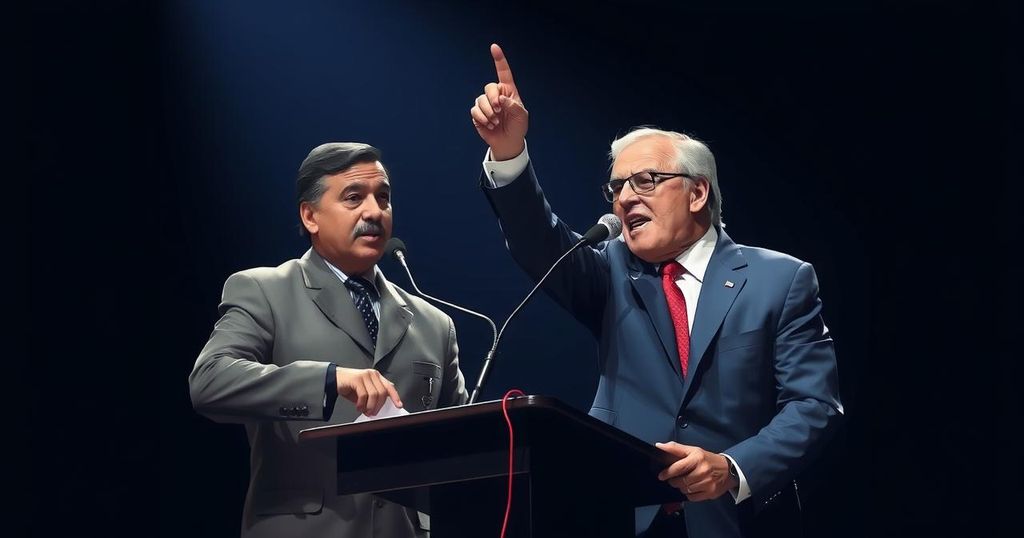Uruguay’s presidential election features Yamandu Orsi, a center-left candidate, versus conservative Alvaro Delgado. Polls indicate a very close race, with potentially under 25,000 votes separating the candidates. Voter turnout and support from smaller parties could prove critical in the outcome of this election, reflective of broader global electoral trends.
In Uruguay, citizens will cast their votes in a critical second-round presidential election featuring moderate candidates. The election sees opposition center-left candidate Yamandu Orsi facing continuity conservative candidate Alvaro Delgado, who is backed by a third party. Polling indicates a close contest, potentially decided by less than 25,000 votes in this nation known for its political stability and relatively relaxed political landscape. Polling stations will operate from 8 a.m. to 7:30 p.m. local time, with initial results anticipated shortly thereafter.
Mr. Orsi, who leads the Broad Front and has expressed aspirations for a ‘modern left’ approach, garnered 43.9% of the initial October vote. His opponent, Mr. Delgado, a member of the National Party backed by the Colorado Party, secured 26.8% of the votes, collectively representing nearly 42% of electoral support. Despite his coalition’s lack of an absolute majority in the lower house, Mr. Orsi claims an advantage due to his Senate majority. Both candidates aim to attract the 8% of voters from minor parties and non-voters from the first round. However, neither has introduced new proposals to win these votes, and a recent televised debate seems to have had minimal impact on public opinion.
The ongoing global trend of incumbent parties experiencing decreased voter support raises questions about whether Uruguay will defy this pattern. Given the pressures of inflation and rising living costs affecting the electorate globally, it remains to be seen if the robust Uruguayan economy can favor Mr. Delgado’s conservative candidacy. As highlighted by expert Nicolas Saldias, “There are few indications that voters are clamoring for significant political change.”
This article addresses the context of the presidential elections taking place in Uruguay, a nation renowned for its relatively serene political climate and moderate democratic traditions. The country is entering a decisive round in its electoral cycle, following initial votes that determined a close competition between candidates from the Broad Front and the National Party. This election is part of a larger trend observed throughout the region, where voter sentiment has shown a tendency to punish incumbents amid economic hardships.
In summary, the upcoming presidential election in Uruguay signifies a pivotal moment for the nation, balancing popular sentiment between two distinct ideological camps. With the electorate facing economic concerns, the results will reveal whether Uruguay’s political landscape can resist the trend of declining support for incumbents observed in other parts of the world. As voters head to the polls, the stakes could not be higher for both candidates as they navigate this tightly contested race.
Original Source: www.ndtv.com







